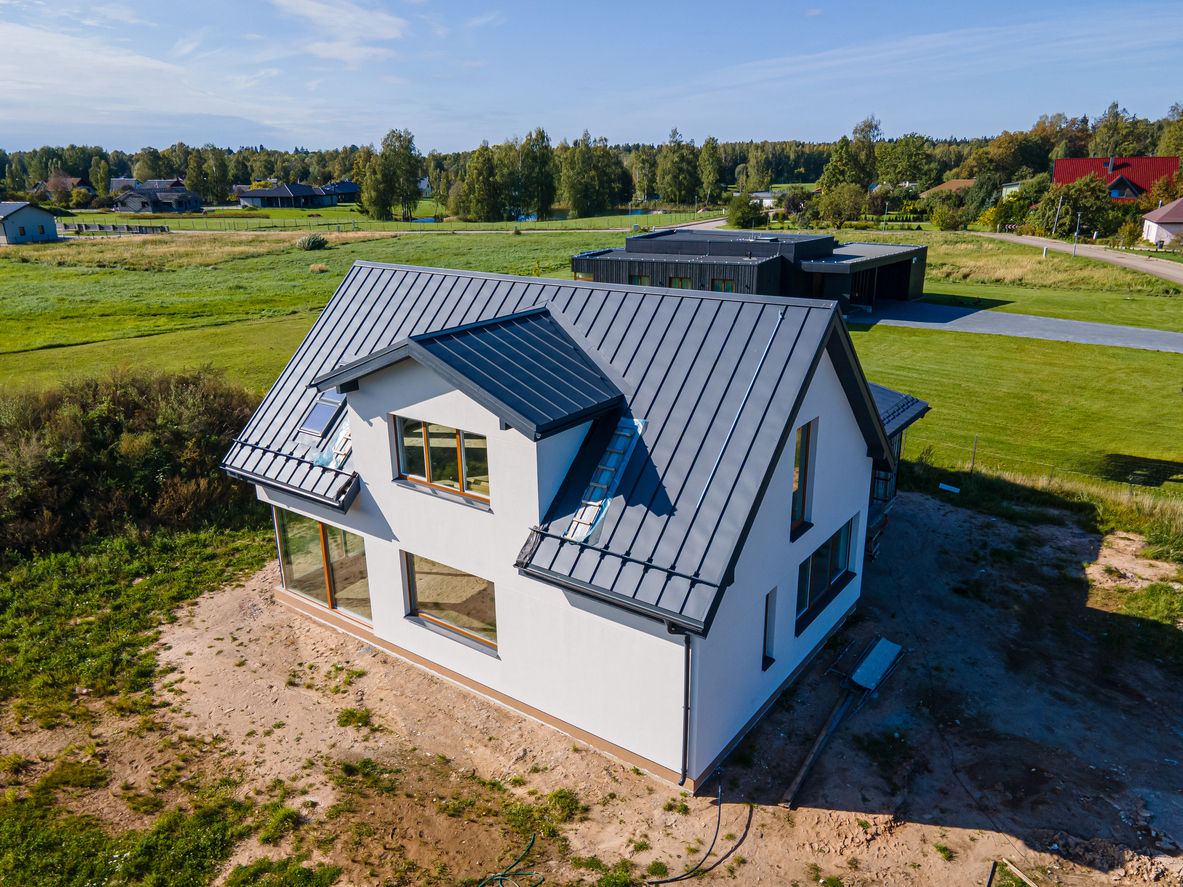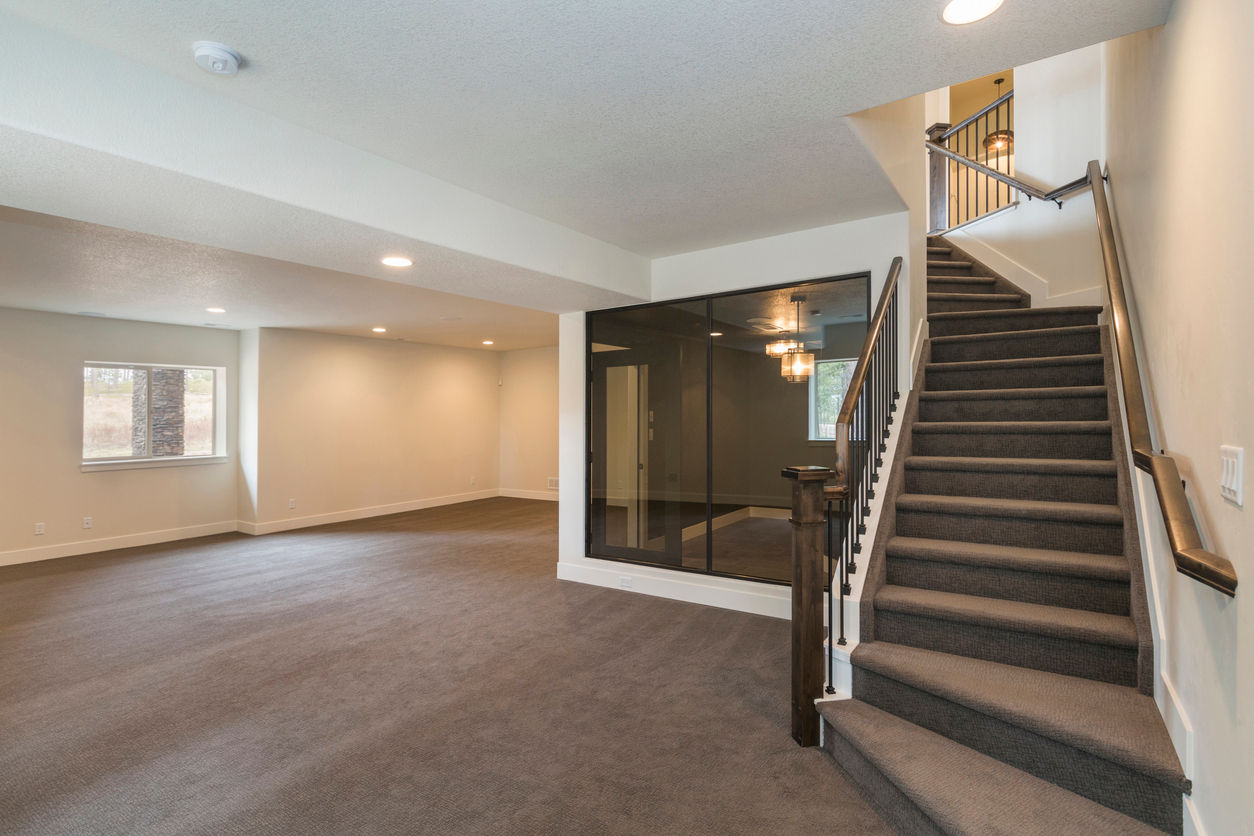Do You Need a Permit to Remodel a Bathroom?
Bathroom remodels have one of the biggest positive impacts on resale value. Homeowners can expect to get back 72.7% of what they invest when it comes time to sell while also enjoying the updated bathroom as long as they live in the house. Bathroom upgrades can range from simple changes, like replacing a vanity, to complete overhauls of the room’s layout.
However, as you make your renovation plans, determine whether you need to acquire a permit before moving forward with the work. Your plans may need to get approval from the local building department before you can start construction.
Do you need a permit to remodel a bathroom? The answer depends on the changes you are making. This guide will cover what requires a permit for a bathroom renovation, what doesn’t, and the consequences of moving forward with the unpermitted project.
What Types of Bathroom Remodeling Projects Require a Permit?
You may be surprised at what improvements require a building permit, especially if you are changing multiple aspects of your bathroom.
Here are a few projects that need a permit for both existing and new construction properties.
Plumbing Changes
Certain plumbing changes will require you to go through the permit process. While you might not need permits for replacing existing fixtures, like putting in a new toilet, you will need a permit to make any changes to your existing plumbing system. This includes rerouting plumbing or replacing your pipes.
New plumbing installations often need permits due to safety and compliance reasons. Local authorities want to make sure your plumbing won’t use an excessive amount of water, leak to a point where it harms your flooring and foundation, or burst unexpectedly, flooding your home.
Electrical Work
Installing new lighting or electrical outlets may require a permit. In fact, most electrical work requires permits so the city can confirm it was done correctly. This ensures everyone who lives in your house or visits stays safe.
Make sure you hire experienced professionals to handle any electrical projects to ensure they are done correctly. That said, minor projects, like replacing existing light fixtures, usually won’t need permits.
Structural Changes
Most structural changes require permits. This includes moving or removing walls and altering the structural layout of the bathroom. These changes will affect the home’s foundation or load-bearing structures, while also changing the home’s layout. The government wants to ensure the proposed work keeps up with legal standards, which means your home will stay in place for years to come.
Filing building permits is also important if your project will change the blueprints of your home. For example, a bathroom expansion could increase your home’s square footage, which also affects your property tax bill.
HVAC Modifications
You will need to complete a permit application if you intend to make changes to your ventilation, heating, or cooling systems. Most jurisdictions require this as part of mold prevention and air quality compliance.
Preventing mold protects the structure of your house while also keeping your family safe. Adding a fan is a great example of an unexpected part of your home remodel that requires building permits.
Floor Plan Alterations
Expanding or changing the layout of the bathroom might require approval. This requires your home to keep up with local building codes, especially if you are expanding the footprint of your house. Many cities have laws that require a minimum amount of green space on each residential parcel. If you are expanding your house, you are taking away that green space.
Even something small like a bathroom remodel can affect your property taxes, home’s layout, and yard size.
Waterproofing and Drainage
Installing or modifying waterproofing systems in the bathroom may need a permit for compliance with local building codes. This is because the city wants to confirm the waterproofing process was done correctly and will withstand use over time.
The permit process is designed to protect you and your future buyers. Even if you trust the general contractor you hire, navigating the permitting process will confirm the work they did is high-quality and designed to last.
Projects That May Not Require a Permit
While the list of projects that need a permit for a bathroom remodel might seem extensive, there are a few projects you can do on your own without any permitting needs.
You might not even need to hire a licensed contractor if you feel comfortable working on these projects yourself.
Cosmetic Changes
Most cosmetic changes can be done without consulting building codes. This includes replacing existing fixtures, updating tile, repainting, or replacing cabinetry.
You might be able to skip the permit process steps if you are doing a simple bathroom remodel that only updates outdated cosmetic choices.
DIY Maintenance
Minor repairs may not need permits; however, they may become an issue if you need to make long-term changes or simple repairs turn into major projects.
For example, if you discover a plumbing leak in your bathroom, you can quickly fix it without pulling a permit. Stopping the water is the most important thing. But if the discovery of the leak leads to a full plumbing replacement project, you need a permit to move forward.
Why Do You Need a Permit for Bathroom Remodels?
Few people are eager to go through the permit process and work with the local building department; however, permitting requirements are meant to protect current homeowners and future buyers alike.
Your permits ensure your work is done correctly, reducing the risk of something breaking or causing harm. Here are a few reasons why you need permits for your remodeling projects.
Ensures Safety Compliance
Permits ensure the work is done in accordance with modern safety standards. Local building codes have guidelines for safety handling foundational work, structures, electrical wiring, plumbing, and a host of other elements.
When you pull permits from your local municipality, they will confirm your plans – or the plans of your licensed contractor – to do the work correctly. This prevents shoddy work that can pose a threat to you, your buyers, and even your neighbors.
Along with pulling permits before you start the work, you may need to schedule a final inspection after it is done. This confirms the remodeling project is done up to code and your home will stay safe.
Electrical work is a good example of this. Faulty electrical wiring could be harmful to you and your family if you touch it. It also increases your home’s fire risk. Not only can an electrical fire devastate your family, but it can also spread to other houses, harming your neighbors. Pulling a permit and working with licensed contractors ensures the work is done right.
Avoids Legal and Financial Risks
Following the permit process eliminates your risk of fines for completing unpermitted work. The average permit costs around $1,600 but your local building department could fine you $500 per day if they discover unpermitted work. The fines will continue until the problem is addressed and an inspection takes place to confirm the work meets local codes.
Unpermitted work costs more because of these fines, but also because the work needs to be done a second time. Even if the work is up to code and only needs an inspection, the stress of government citations often isn’t worth it.
Unpermitted work will also prevent you from selling your home. If buyers discover unpermitted remodeling work during the inspection process, they might back out or ask for a remediation. You will either have to fix the issue before closing or potentially lose buyers, slowing the sale process.
It is better to navigate the permitting process the first time work needs to be done instead of dealing with it once the unpermitted work is caught.
Prevents Insurance Issues
Unpermitted work can also cause insurance headaches. Your insurance company might not renew your policy or approve damage claims if the work is unpermitted. This further creates issues with selling as well. Insurers don’t want to create policies for buyers who are purchasing homes with unpermitted work.
Keeping a record of permitted work can make the claims or insurance application process easier. You can prove that the remodeling projects were done up to local code and were approved by the city.
How to Obtain a Permit for Your Bathroom Remodel
The permit process doesn’t have to be complicated. Most licensed contractors can handle this part of the remodeling project for you and will hand you the approved permit for your records once it’s approved.
However, knowing the permit process steps is useful, especially if you are taking on the bathroom remodeling project yourself.
Research Local Building Codes
The first step is to work with your local building department to understand specific requirements in your area. The building codes might have been developed with the best safety practices in mind or designed to support environmental sustainability. Knowing the codes before you start can ensure you keep up with them.
This research can also tell you whether your project will require permits. You might not need a permit for some aspects and can move forward without completing this process.
Submit Your Plans
If you need permits for your bathroom remodel, the next step is to submit your plans. These are blueprints and other outlines that explain what you intend to do and how you will do it. Any changes you intend to make, whether they involve structural changes, electrical improvements, or updates to the plumbing system, need to be included. Each of these changes also needs to keep up with local codes.
Know that the local building department may reject your plans or ask you to improve them. Once the plans are approved, you will need to stick to them during the construction process.
Understand Permit Costs
During this time, look up the costs for building permits. Your permitting costs will vary by the type of project, the scope of the work, and the location where you live. Some permits are more expensive than others and need to be part of your overall bathroom remodel budget. Typically, the larger the project, the more expensive the permits. Your plans will not be approved until you pay the permit fees.
Schedule Inspections
Once your permits are approved and the fees are paid, you can move forward with the bathroom remodeling process. However, you aren’t done working with the local authorities just yet. You will need to schedule an inspection once the work is complete to confirm that it was done up to code.
If the work was done right the first time, you should pass the inspection. However, if the work was done poorly or incorrectly, you may need to schedule follow-up inspections and make repairs to meet local guidelines. After the final inspection, your work is done.
Even if your project keeps up with local codes, you still may need multiple inspections. This is because the local authorities want to approve one step before you move on to the next. For example, they may want to look at your foundational work before you can move on to the framing process. This way you don’t have to restart with foundational changes if something is wrong.
Know the Permit Process Before You Start a Bathroom Remodel
Your bathroom remodel can significantly improve your quality of life and make your home desirable to buyers. However, it needs to meet local building codes and pass inspections to prove the work is safe and designed to last.
It is better to fill out a permit application than to remodel a bathroom without one. Otherwise, you could face steep fines or have a hard time selling your house in the future.
When in doubt, consult with professionals, including contractors and local authorities, to avoid any potential legal or financial consequences. You can also talk to a real estate agent if you currently have unpermitted improvements and want to sell. They can help you remediate the issue before the listing process.
Turn to FastExpert to find qualified Realtors in your area. Always hire people you trust when making plans to improve, repair, or sell your home.





